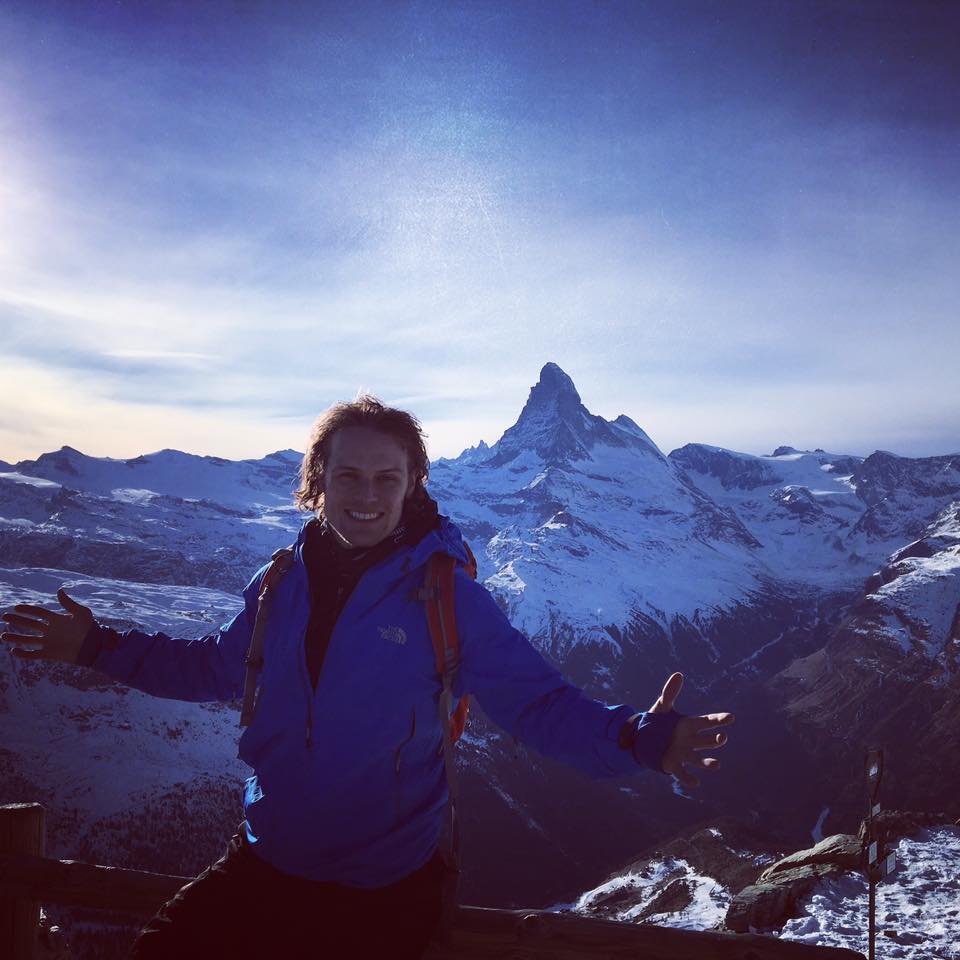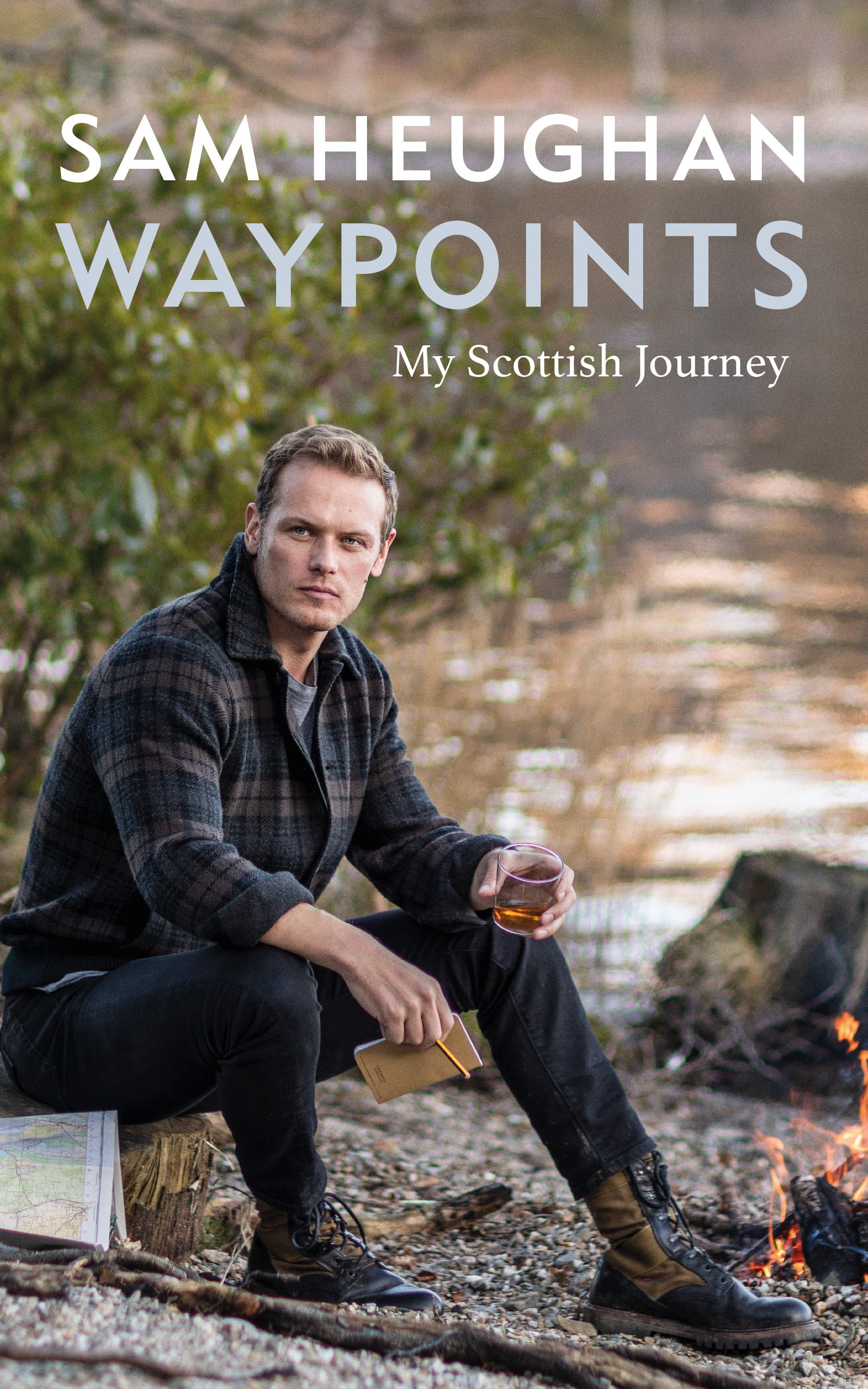One can travel in many ways. The journey of life, however, is a journey on foot. Often uphill: even climbing along a mountain ridge. It depends on where you are and where you want to go.
Why does one travel? For pleasure or for necessity. But the real journey, the one that changes existence, is wanting to understand oneself. And to understand means to go to the origin, to find one’s roots, to ask ourselves the many questions that during childhood, youth, and the beginning of adulthood, we did not have the courage or time to ask ourselves. It is always the family of origin that we want to understand. The behavior of our fathers and mothers determines our existence.
Actor Sam Heughan – the legendary hero Jamie Fraser from the beloved TV series Outlander – is an extremely intelligent man and he knows this. What was my father like? Why did he abandon me? He must have wondered. To find the answers, he bundled up and set out on foot nearly 100 miles, in the cold month of November, along the West Highland Way with the intention of reaching the summit of Ben Nevis, Scotland’s highest mountain.

During the five-day journey, he kept a journal that was later published as Waypoints. My Scottish Journey (Radar). A touching outward and inward account where he talks about the beautiful nature around him and about himself, how difficult it was to become what he is today, a man of success. He held on and fought, always looking ahead with determination and conviction. But he remained the same as before, always eager to listen and help others. And today he teaches about setting goals in life through his charitable foundation My Peak Challenge. As a child, Sam played at being King Arthur or Robert the Bruce, and learned so well to be a hero that as an adult he has become a modern form of a hero, a philanthropist, managing to raise about $6 million since 2015 on research for a cure for blood cancer.

In legendary tales, among the feats a hero had to undertake was that of searching for an unknown father. Not knowing a parent and not being loved by one is lacerating and destabilizing. One feels rejected. On the other hand, having a parent who mistreats and denigrates you, undermining your self-esteem, is perhaps worse because you remain insecure your whole life.
Sam Heughan is certainly not insecure, but insecure is the ground beneath his feet. That is why he has already completed three books on Scotland; in fact, it is this land where he was born that gives him the roots of his identity. When you don’t know your family roots or have lost them, you look for rootedness, solidity, the land, the homeland. The homeland is the land of the fathers. Where I come from, Sam Heughan thinks. And he wanted to know his Scotland well, traveling it far and wide. Because nature can speak to us, if we know how to listen. And you must be alone along the way to be able to hear its voice.
What happens then if a father does not do his job? His reference figure disappears. And without a father, there are no children. Sam Heughan’s is a universal quest because we live in a society where the father is absent. Even in families where he is present, he is often unable to give a child an initiation into life, but only into the material comforts that money can give him. Men have lost the spiritual dimension of fatherhood. Only by being able to raise a child can they demonstrate it.
In 2016, in this column, I reviewed psychoanalyst Luigi Zolja’s enlightening essay (translated into several languages), Hector’s Gesture. Prehistory, History, Actuality and the Disappearance of the Father. He explains that a son acquires identity through the elevation, blessing and initiation of the father. Elevation is the gesture that the Trojan hero Hector makes by raising his son Astyanax to the sky to request the blessing of the gods. Certainly, without being aware of this psychological theory, Sam Heughan writes, “I dared to come from so far away to be heard by the gods.” Initiation was a rite of passage, which adolescents had to go through in all societies of the world in different ways, but with the same symbolic meaning. By refusing this path to his son, a father fails to pass on to him the model of an adult man.
Now, how does a son feel without having been “elected” as such by his father? Orphaned, rootless, without ancestry, because he has not been raised to heaven, to God, and then blessed in his life process. A father is needed to teach, to lead by the hand. It is this gesture, according to the Hebrews, that attests to the identity of a father. It is the son, taken by the hand, who begets the father, calling him by this name.
Heughan writes with his heart on his sleeve and moves us: “Coming to terms with the loss of a loved one is a journey, I think, and often an endless one.” But it is precisely this search for the father figure that allows us to know his value. It is often the awareness of this absence that shapes you to face life. In fact, the actor stated in a television interview, “If I am what I am today, I owe it – for better or worse – to him, as well.”
Unconsciously, Sam Heughan chose the path of initiation that a father should take, taking it alone. For in his journey, he has sought his own identity, elevation in his ascent to the mountain, and in reaching the summit and raising his arms to heaven, the blessing of the gods. He may not know that he has healed the psychic wound, that is, of the soul, that his father had caused him by abandoning him, but he is aware that he is now a transformed man, reborn. He has found himself on Ben Nevis by discovering that he is his own father because he has been able to chart his own path in life.
By becoming the charismatic Jamie Fraser he has paved the “epic journey” he so dreamed of as a child, and who knows, one day he may be offered a tailor-made role as King Arthur or another hero he still longs to play. According to Shakespeare, we are made of the same substance as dreams. But as Sam Heughan pointed out, “I don’t stop until I get what I want”: for the dream to become reality.
Phrases by Sam Heughan:
“I’ve dared to come this far for an audience with the gods.”
“Coming to terms with the loss of a loved one is a journey, I think, and often one without end.”
“I won’t stop until I get what I want.”













